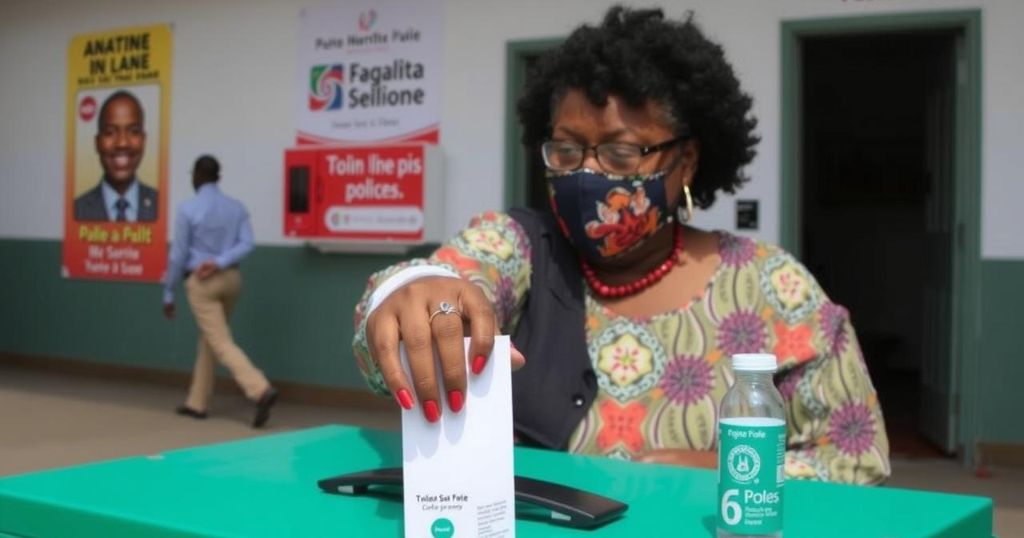Comoros Elections: Concerns Over Transparency and Participation Amid Opposition Boycotts
On Sunday, Comoros held legislative elections amid opposition boycotts due to transparency issues. Key candidate Nour El-Fath Azali, son of President Azali Assoumani, faced significant logistical flaws in the voting process. Reports indicated late openings and inadequate voting conditions, raising further questions about the election’s credibility. The ruling CRC party is expected to dominate again, despite ongoing opposition protests and allegations of prior electoral fraud.
On Sunday, the Indian Ocean nation of Comoros conducted elections for their legislative assembly, amidst significant opposition unrest over concerns regarding transparency and fairness. The elections saw the participation of Nour El-Fath Azali, the son of President Azali Assoumani, who is contesting for a constituency neighboring the capital, Moroni. Observers reported logistical setbacks, including late openings of voting booths and inadequate facilities, which detracted from the electoral process, raising further questions about its credibility.
U.S. election observer James Burns noted instances of improvised voting setups, such as a booth configured with two panels around a table and another consisting only of a box on a chair, undermining voter privacy. Nour El-Fath, who was recently appointed as Secretary General, wields expanded powers that position him similarly to a prime minister; critics argue this consolidates the ruling party’s control over government operations.
President Azali Assoumani was recently re-elected amid allegations of electoral fraud, which have ignited protests and violence in the past. Following his vote in Mitsoudje, he expressed gratitude for the peaceful campaign, despite the adverse weather conditions. The CRC, the ruling party, is projected to maintain a strong dominance in parliament as many candidates face little to no competition.
Approximately 340,000 registered voters are participating in this two-round electoral process, with a second round scheduled for February 16, 2024. The elections are further complicated by the memory of the disputed January 2024 elections, which had detractors claiming extensive voter manipulation and intimidation by the ruling party.
The Comoros has undergone a tumultuous political landscape, characterized by coups and contested elections. President Azali Assoumani, who initially came to power in a coup in 1999, was re-elected in January 2024 under circumstances that opposition groups label as fraudulent. The recent legislative elections reflect ongoing tensions between the ruling Convention for the Renewal of the Comoros (CRC) and opposition parties. Concerns about electoral integrity continue to hinder the political environment in the Comoros, impacting citizen confidence in democratic processes.
In conclusion, the legislative elections in Comoros highlight significant challenges faced by the nation, including allegations of electoral fraud, logistical failures, and widespread opposition discontent. As the CRC is poised to secure a commanding presence in parliament, the concerns regarding the transparency and fairness of the electoral process will likely persist, raising questions about the future of governance and democracy in the Comoros.
Original Source: www.arabnews.com




Post Comment